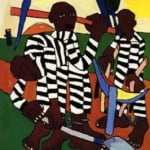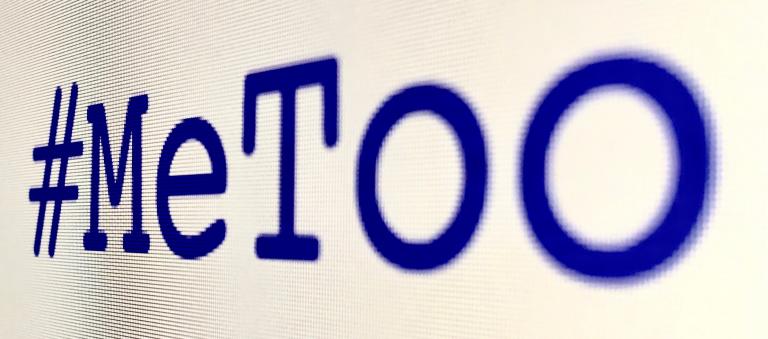 This is the last in a four part series from Dr. Christopher Stroop, a self identified “ex-Evangelical” who seeks “to foster community for those harmed by and alienated from conservative religious communities.” The posts in this series come from his post “Educated Evangelicals, Academic Achievement, and Trumpism: On the Tensions in Valuing Education in an Anti-Intellectual Subculture” first published on his blog. We thank Dr. Stroop for allowing us to publish it here on R3.
This is the last in a four part series from Dr. Christopher Stroop, a self identified “ex-Evangelical” who seeks “to foster community for those harmed by and alienated from conservative religious communities.” The posts in this series come from his post “Educated Evangelicals, Academic Achievement, and Trumpism: On the Tensions in Valuing Education in an Anti-Intellectual Subculture” first published on his blog. We thank Dr. Stroop for allowing us to publish it here on R3.
By Christopher Stroop
“But God chose the foolish things of the world to shame the wise; God chose the weak things of the world to shame the strong.” – 1 Corinthians 1:27 (NIV)
After my first year in college (if memory serves–it had to be after my first or second), I found myself at a concert held back at my Christian school. A local Christian singer was performing. As she got ready to cover Nichole Nordeman’s “Fool for You” (the “you” is Jesus), she said something that’s been etched in my memory ever since. “It’s impossible to be too dumb to get into the Kingdom of Heaven. It might be possible to be too smart, but it’s not possible to be too dumb!” The crowd cheered wildly, while I sat there quietly horrified, pondering the “it might be possible to be too smart” part of her statement.
The song itself was already cringeworthy to me; I encourage you to click on the link above and listen to it, paying attention to the lyrics, just to get a feel for the attitudes one finds in Evangelical communities and contemporary Christian songs. They usually resolve everything tidily, because Evangelicals generally do not deal well with internal conflict, questions, ambiguity or, well, reality. And yet they live with glaring contradictions they refuse to face.
The value placed on a (circumscribed) good education one finds among educated, middle and upper-class Evangelicals sits oddly with this kind of overt anti-intellectualism that one also meets frequently in the subculture. But in this area too, one meets not only aggrieved defensiveness, but also magical thinking, both of which help explain white Evangelicals’ affinity for Trump. I’ll give just two examples.
Fist, on the aggrieved and defensive front, an experience from my two years at Colorado Springs Christian Middle School comes to mind. This school was even more extremist than the one I graduated from in Indianapolis; while at CSCS, I had to do a worksheet in (I think it was eighth-grade) Bible class that indicated that black people were the cursed descendants of Ham. The teacher seemed embarrassed, but made us go through the material anyway. The incident I’m thinking of happened once while I was in the lunch line, and the cashier overheard me referring to humans as primates. She became furious and red-faced, despite my protestations that I was simply using a descriptive classification, not actually suggesting that humans evolved from apes. That didn’t stop her from going, well, apeshit. I suppose I was lucky to come out of that without a detention.
Now to the magical thinking. I spent my third year of college studying abroad, in Germany and England, and as I had some time between terms due to differing academic schedules, I decided to spend a month in Russia. This was in early 2002. A German friend accompanied me for the first part of the trip to Russia, which we spent in Moscow and St. Petersburg. As it was not so far back that I had participated in short-term mission trips in Russia (1999 and 2000, more here), despite my increasingly acute crisis of faith, I was able to find connections through missionaries to help arrange affordable lodging and even some guided tourism, which was nice.
In Moscow, we worked with an American woman who was employed at a missionary organization. She was very friendly and helpful, but also exhibited typical Evangelical magical thinking. Her Russian was not very good, she admitted to us, before telling us that she spoke fluent Spanish, but God “called her to Russia.” I had long since become critical of this notion of God “confounding the worldly wise” by using people with dubious qualifications as “vessels” of his will in particular callings to which they are not naturally suited, but it is a deep-seated part of Evangelical culture. Later in the trip, I visited a Wesleyan church in Vladimir, where, I was told, the pastor had been serving for seven years. He still preached through an interpreter. My Russian–I could get by but was not fluent at that time–was clearly better than his. I was not impressed.
What this is meant to illustrate is the broader point that Evangelicals devalue the expertise of “secular elites.” Since these “elites” are “wrong” about evolution, it is easy for Evangelicals to believe they are also wrong about climate change, and, indeed, to believe anything our increasingly radical American conservative movement–radicalized in large part thanks precisely to the Christian Right–wants to believe. Belief in “the Truth” inevitably leads to post-truth, which is a necessary condition for a power struggle in which authoritarians, if victorious, can impose the narrative they wish to impose on society.
As long as he proved willing to protect them, to treat their views, no matter how absurd, as acceptable or even authoritative, and in particular to help them pursue their goal of outlawing abortion, it should surprise precisely no one that America’s white Evangelicals overwhelmingly supported Trump for the presidency. Fundamentalism is authoritarian. Political forms of authoritarianism are essentially species of fundamentalism. And the dynamic they represent is abusive. Post-truth politics is gaslighting on a large social scale. Today’s radical post-truth regime is now in power in America largely thanks to your friendly neighborhood white Evangelicals, who are confounding the worldly wise indeed.
Dr. Christopher Stroop graduated from Stanford University with a Ph.D. in Modern Russian History and Interdisciplinary Studies in the Humanities. In addition to being a scholar, he is a freelance writer, public speaker, and commentator on religion and politics, the US Christian Right, Russia, and foreign policy. He is currently a Provost’s Postdoctoral Scholar at the University of South Florida, where he teaches an upper-level 19th-century Europe survey in the History Department and an interdisciplinary Russian Studies course in the Honors College. He blogs at chrisstroop.com . You can also follow him on Twitter @C_Stroop.
Donate to the Work of R3
Like the work we do at Rhetoric Race and Religion? Please consider helping us continue to do this work. All donations are tax-deductible through Gifts of Life Ministries/G’Life Outreach, a 501(c)(3) tax exempt organization, and our fiscal sponsor. Any donation helps. Just click here to support our work.












